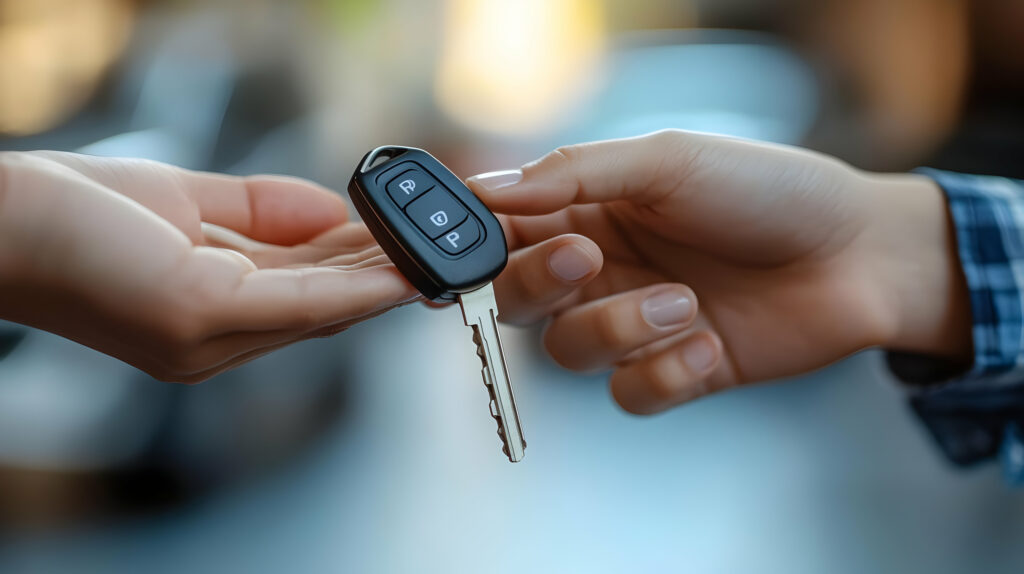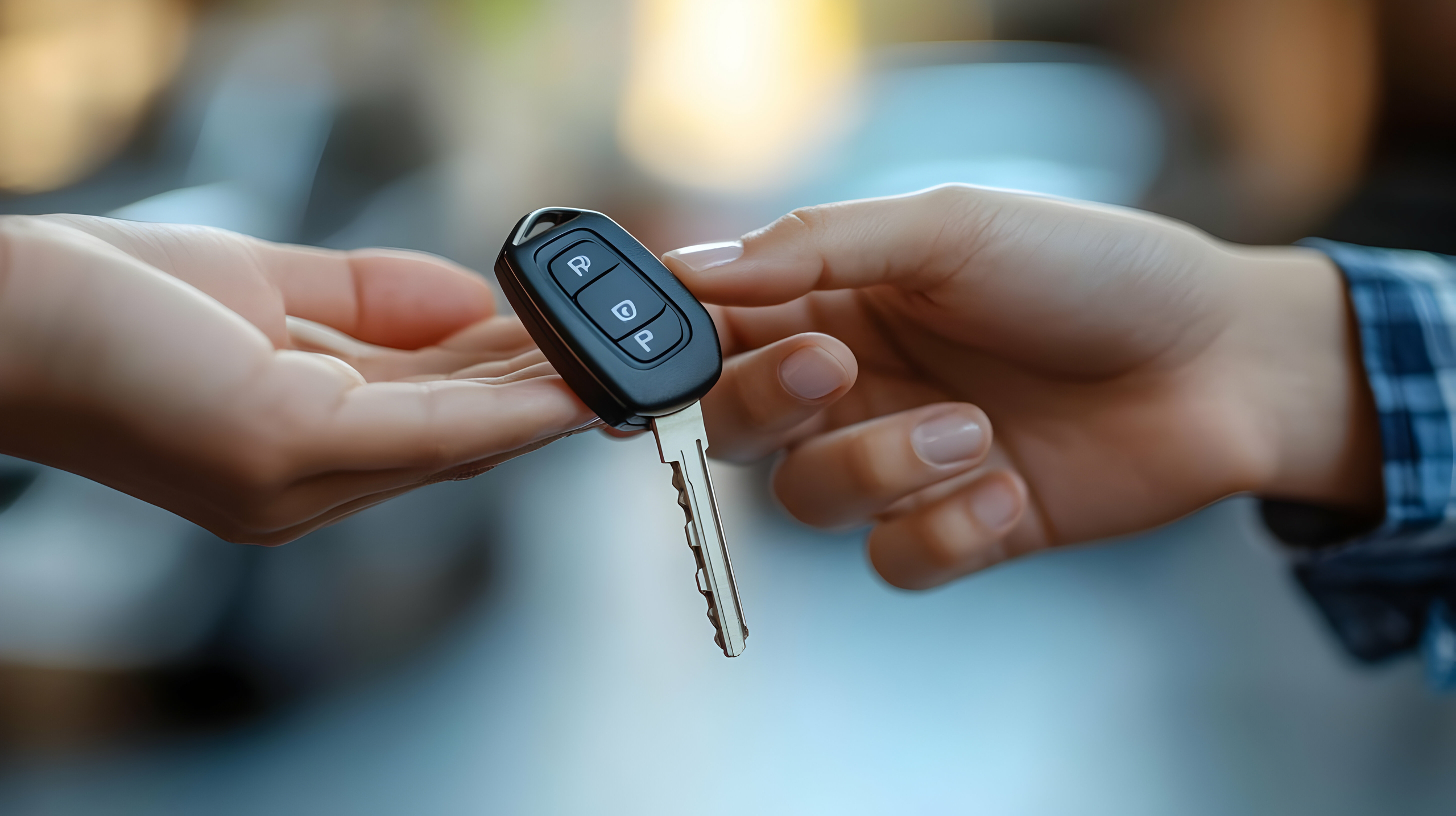How Shared Vehicle Ownership Affects Liability in Car Accidents
Co-owning a vehicle might seem like a convenient and cost-effective decision, but it can create complicated legal, financial, and insurance issues—especially if the car is involved in an accident. When two or more people share ownership of a car, determining liability, managing claims, and protecting oneself from lawsuits requires careful planning and a solid understanding of the law.

In this comprehensive guide, we’ll walk you through the legal implications, insurance nuances, and risk mitigation strategies for shared vehicle ownership.
What Is Shared Vehicle Ownership?
Shared vehicle ownership occurs when two or more individuals have a legal or functional stake in a single vehicle. This type of arrangement is becoming more common among family members, roommates, business partners, and domestic couples looking to cut transportation costs or share responsibilities.
Common Types of Shared Ownership Arrangements
- Joint Title Ownership
In this setup, both individuals are listed on the title and registration of the vehicle. Each person has equal legal ownership of the car, and this often implies shared responsibility in case of damages or legal issues. - Informal or Verbal Agreements
In many cases, only one person holds the legal title, but another uses the vehicle regularly. While this is common among roommates or partners, it can lead to disputes or confusion during insurance claims or legal proceedings. - Family or Domestic Partnerships
Family members or couples often share vehicles out of convenience. However, if only one party is listed on the title or policy, the other may have little to no legal protection in case of an accident. - Business Vehicle Sharing
In a business context, a car may be co-owned by partners or used by multiple employees. Ownership and insurance responsibilities in this case are usually governed by a corporate policy or agreement.
Why the Type of Ownership Matters
The nature of the ownership arrangement can have a significant impact on legal liability and insurance coverage. For example, joint legal ownership (with both names on the title) may imply that both owners are equally responsible for accidents, even if only one was driving.
Title and Registration: The Legal Backbone of Ownership
The vehicle title and registration documents determine who legally owns the car and who is authorized to make decisions related to it, such as selling, insuring, or modifying the vehicle.
There are two common ways in which titles are issued to multiple owners:
- Joint Ownership with “AND”
This means that both owners must sign off on any major action involving the car—such as selling it or changing the insurance. This also often implies that legal and financial liability is shared. - Joint Ownership with “OR”
In this case, either owner can act independently without the consent of the other. While this may offer convenience, it can also create vulnerabilities, especially if one party makes a decision that affects the other legally or financially.
If your name is on the title, courts will generally consider you an owner with a duty of care. This means you could be held legally responsible if the car is involved in an accident, even if someone else was driving.
Insurance and Shared Ownership
Understanding how auto insurance works in the context of shared ownership is critical. Many people mistakenly assume that the insurance will automatically protect both co-owners. However, this depends on the terms of the policy and who is listed on it.
Does One Insurance Policy Cover Both Owners?
Auto insurance policies typically require all owners and regular drivers of a vehicle to be listed. If your co-owner is not named on the policy, the insurance company may deny a claim, especially if that person causes an accident.
In addition, most standard policies include permissive use clauses that extend coverage to individuals who have temporary permission to drive the car. However, this is not the same as a shared ownership scenario, and insurance companies may treat it differently.
Understanding Policy Limits and Exclusions
- Named Driver Only Policies: These restrict coverage strictly to the drivers listed in the policy. If someone else crashes the car—even a co-owner—they may not be covered.
- Use-Based Exclusions: Personal policies may exclude coverage if the car is used for commercial or business purposes.
- Driver Consent Provisions: Some policies deny claims if the driver did not have explicit permission to use the vehicle.
To avoid coverage disputes, both owners should be listed on the insurance policy, and the intended use of the car should be clearly stated.
Legal Responsibility in an Accident
When a car co-owned by two people is involved in an accident, determining legal responsibility becomes a nuanced issue. Most jurisdictions assign liability based on fault, but ownership plays a key role in how damages and claims are processed.
Can Both Owners Be Sued?
Yes, both owners can be sued—especially in states that observe joint and several liability. In such cases, even if only one person caused the accident, both can be held fully responsible. This means a plaintiff can recover the full amount of damages from either party.
This is particularly likely if:
- The vehicle title lists both individuals
- The driver had permission from the other owner
- There is evidence of negligence or misconduct
Even if one owner was not present at the scene, they may still be dragged into legal proceedings based solely on their ownership status.
How Ownership Affects Legal Exposure
Ownership implies a level of control and responsibility over the vehicle. Courts may interpret this to mean that both owners had a duty to prevent misuse or reckless operation of the car. If one party fails in this duty—by, for example, allowing an unlicensed or intoxicated driver to operate the vehicle—the other owner may be indirectly liable.
Financial Risks and Claims Processing
Being a co-owner of a vehicle can have direct and lasting financial consequences, especially in the event of a claim or lawsuit.
Who Pays for Damages?
If both owners are found liable, they may be equally responsible for covering damages—either out-of-pocket or through insurance. However, insurance companies may only pay up to the policy’s limits. Any additional liability may fall on the co-owners themselves.
Impact on Premiums
A shared accident often affects both parties’ insurance records, even if only one was driving. The next time you renew your policy, you could see an increase in premiums. This can become especially problematic if one co-owner has a clean record but the other does not.
The Claims Process for Co-Owners
To file a claim successfully, both owners should:
- Be listed on the insurance policy
- Be aware of the other’s driving record and insurance history
- Cooperate with claims adjusters and law enforcement during the investigation
If there’s a dispute between owners about fault or financial responsibility, the claim may be delayed—or even denied—by the insurance company.
Real-Life Scenarios and Legal Outcomes
Scenario 1: Your Co-Owner Causes an Accident
Let’s say your roommate crashes the car. Even if you weren’t in the vehicle, your name on the title and insurance could make you liable. The victim could sue both of you, and your assets could be at risk.
Scenario 2: The Co-Owner Is Uninsured
If the person who caused the accident isn’t listed on the policy—or the policy has lapsed—you could be sued personally for damages. In this case, your only option may be to sue the co-owner yourself to recover costs.
Scenario 3: Disputes After Divorce or Family Breakups
If a couple separates and one party continues using a jointly owned car, accidents can quickly escalate into legal disputes over liability, ownership rights, and financial obligations.
How to Protect Yourself Legally and Financially
Draft a Co-Ownership Agreement
A written agreement is essential, even if you’re sharing a vehicle with a close friend or relative. The agreement should outline:
- Who is responsible for insurance and registration
- How damages, tickets, and repairs will be handled
- What happens if one party wants to sell their share
Ensure Proper Insurance Coverage
Always make sure:
- Both owners are listed on the policy
- The policy accurately reflects the vehicle’s usage
- Liability coverage is sufficient for worst-case scenarios
Seek Legal Advice
Every state has different laws regarding tort liability and vehicle ownership. A qualified attorney can help you:
- Understand your responsibilities
- Draft a co-ownership agreement
- Review your insurance policy for gaps or weaknesses
Frequently Asked Questions About Shared Vehicle Ownership Liability
Can I be held liable if my co-owner crashes our shared car?
Yes, you can be held legally liable if your co-owner causes an accident, especially if your name is on the vehicle’s title or the insurance policy. Courts may consider both co-owners responsible under the principle of joint ownership, depending on state laws and the nature of your agreement.
Does my auto insurance cover accidents caused by my co-owner?
It depends on the specifics of your policy. If your co-owner is listed as a driver on your auto insurance and had permission to use the vehicle, the insurance will likely provide coverage. However, if the co-owner is not named or if the usage violates policy terms, the insurer may deny the claim.
If I’m not driving, why would I still be sued?
Ownership implies a duty of care over the vehicle. If your name is on the title or registration, and the vehicle is involved in an accident, plaintiffs can pursue legal action against you even if you weren’t the driver. This is especially likely in states that observe joint and several liability, where each owner can be held fully responsible.
Will an accident affect both owners’ insurance premiums?
Yes, if a claim is filed under a shared insurance policy, it can impact the driving records and insurance rates of both owners. Insurance companies evaluate risk based on the entire policy and all listed drivers, so one co-owner’s accident may lead to higher premiums for the other.
Can I remove my name from the vehicle title if I no longer want responsibility?
Yes, but you’ll need the consent of the other owner to re-title the vehicle. You may also need to notify the DMV and the insurance provider of the change. Until your name is legally removed from the title, you may still be considered liable.
Contact Lawlor, White & Murphey Today
Sharing a car might simplify your life on the surface, but it can create significant legal and financial risks if not properly managed. From liability lawsuits to insurance coverage gaps, co-ownership of a vehicle should never be taken lightly.
If you co-own a vehicle or are considering entering such an arrangement, contact Lawlor, White & Murphey for a free consultation. A few hours with our lawyer today can save you thousands of dollars—and considerable stress—down the road.
